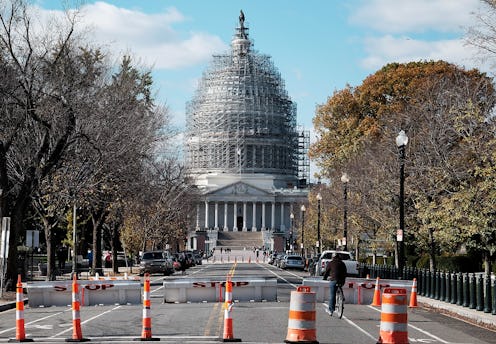News
Will San Bernardino Lead To Fewer Marriage Visas?
On Wednesday, the city of San Bernardino, California was struck by a sudden outburst of violence, as two armed suspects — since identified by authorities as husband and wife Syed Rizwan Farook and Tashfeen Malik — descended on the Inland Regional Center and opened fire, ultimately killing 14 people and wounding 21. A subsequent FBI investigation has suggested that the pair were sympathetic to ISIS, and reports indicate Malik entered the United States on a K-1 marriage visa in 2014. Which raises a serious question: will San Bernardino cause a marriage visa crackdown?
It's a very relevant question, considering how reactive the American political conversation can become immediately following acts of terrorism. On Friday, the FBI acknowledged that the San Bernardino investigation would proceed as a terrorism investigation, which immediately set the political gears in motion. As Indiana Republican Luke Messer told The Hill on Saturday, Republican lawmakers are now pushing to review and potentially tighten the rules surrounding marriage visas, although the impending holiday break could end up delaying the process.
In light of the renewed terrorist threat, we need to take a look at our entire visa program to enhance our national security. This incident highlights the very real security threat throughout the system. Experts in the field now say that terrorists recognize that passports, visas and immigration documents are now weapons in the war on terror. ... We need to look at K-1 visas as part of the broader policy debate. If it can’t be dealt with next week, it will need to be dealt with early next year.
As The New York Times details, Malik initially entered America on a K-1 visa, which permits people to stay in the United States for up to 90 days in which they can wed an American citizen. She was reportedly born in Pakistan, and moved to Saudi Arabia prior to meeting Farook, who was an American citizen. The reaction among Republican officials is reminiscent of how the debate shifted regarding the Syrian refugee crisis in the aftermath of the Paris terrorist attacks last month, albeit slightly more grounded in reality — while there's no evidence any Paris attackers came from Syria, Tashfeen did indeed enter the U.S. by way of a K-1 visa.
It's also similar in that any tightenings of the refugee or marriage visa systems could have damaging impacts on altogether innocent people, whether somebody looking to move to America to share a life with someone they love, or somebody escaping a war-torn country that they can no longer call home. In 2014, the U.S. State Department issued nearly 36,000 K-1 visas, and President Obama has pledged that the country will accept approximately 10,000 Syrian refugees in 2016.
